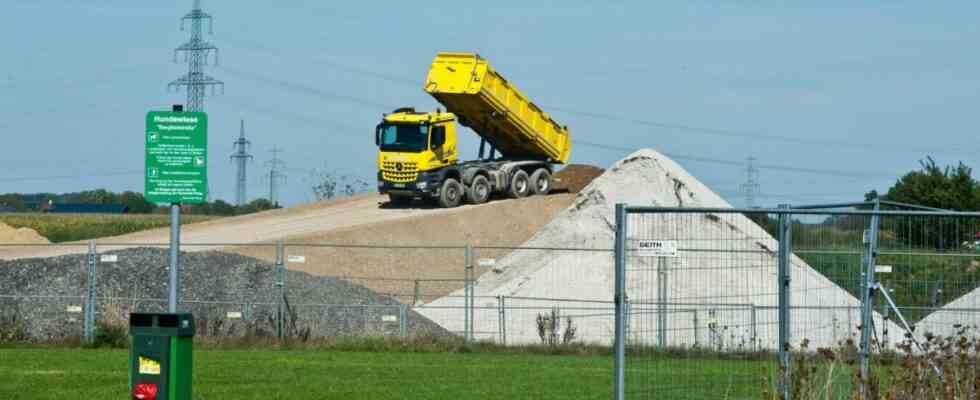High school or vocational school? The question that has been popping up again and again for a long time when it comes to academization and a lack of skilled workers is currently being expressed in the discussion about two properties in the Ebersberg district. What should be built first? The grammar school in Poing, which is supposed to relieve the overcrowded schools in Vaterstetten and Markt Schwaben, or the vocational school planned on a meadow in Grafing station? For the IHK regional committee Ebersberg there is only one answer.
All other districts in Bavaria have a vocational school – only Ebersberg does not. This sentence is constantly repeated on Thursday afternoon at the IHK meeting. Chairwoman Sonja Ziegltrum gives an example of the consequences for her own company: Apprentices who want to do part-time training with her at the flower center in Parsdorf often do not get their hours in the first year of training. Because they have to commute one and a half days a week to the vocational school in Munich or Rosenheim, very few would manage to be back at the company for the remaining half day. According to the chairperson, the planned location for the vocational school is ideal: “There is a property in Grafing Bahnhof with excellent public transport connections, and there are rooms.”
“We are looking in trade, in the service sector, in nursing, in the education sector,” says the chairwoman
Especially with a view to the shortage of skilled workers, it is important to establish a vocational school in the district. “We are looking in retail, in the service sector, in care, in the education sector,” Ziegltrum lists. Standing up for the vocational school is a signal: the training is also a path for the young people that can be promising. This project would be supported by a broad community of interests among companies. “And we are ultimately the ones who pay trade tax,” says Ziegltrum.
As an idea, the chairman also throws in the room to realize both projects by making compromises on both sides. “Does every school have to be built the same size?” she asks and suggests, for example, building only for disciplines such as automotive mechatronics and a branch in addition to the nursing school; this could be expanded over time.
The IHK regional committee meets in the “Zamworking Space” in Grafing.
(Photo: Christian Endt)
An entrepreneur from the district talks about the difficulties in finding suitable trainees. What would a vocational school do to improve this situation? Sonja Ziegltrum talks about the so-called basic vocational school year: In this year, school leavers who don’t really know where to go in life can gain orientation – for example through internships in regional companies. It is not uncommon for this to result in an apprenticeship.
Augustinus Meusel, who was present as a guest from the Ebersberg district’s economic development agency, also advocates campaigning for a vocational school: “It’s an important attraction for some school leavers when they know: Yes, I’m not that far.” The construction of the grammar school has numerous advocates on the part of the parents; the vocational school, on the other hand, has a bad lobby. “The companies urgently need trainees,” says Meusel. With a view to the constantly growing increase in jobs subject to social security contributions in the district, the representatives of the employment agency present said: “We can only support the construction of a vocational school.” There is great potential if you bind young people to the district from the start.
The Ebersberg district administrator does not want to hit either side
And so the IHK members present unanimously decide to prioritize the vocational school. “From the point of view of the regional economy, the current lack of funding by the district for such an important point is incomprehensible,” says the position paper. District Administrator Robert Niedergesäß (CSU) has already commented on this decision: “I am pleased that this project is finally getting more attention and support.” The planned vocational school is a key investment in the training professions, because there is a desperate need for skilled workers everywhere, the district administrator continued. However, he doesn’t want to finally take sides: “Our district needs both schools, and it’s important that people work for them.” Whether high school or vocational school – the district council must ultimately decide in its next budget debate.

